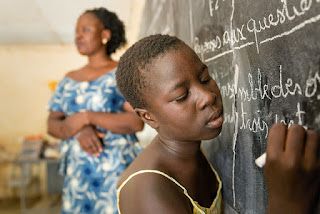Women's education and literacy
Women's education and literacy are important contributors to the cause of gender equality and women's empowerment. Education is a fundamental human right that all people should have access to in order to pursue their goals, aspirations, and improve their quality of life. Yet, major obstacles, such as poverty, cultural norms, gender stereotypes, and discriminatory laws and regulations, continue to exist for women all over the world in their pursuit of an education.
In many regions of the world, especially in low-income nations, the low literacy rates of women present a serious problem. Around 132 million girls globally lack access to education, and more than 600 million women are illiterate, according to UNESCO. Women with lower levels of education are more likely to live in poverty, have poorer health, and have fewer prospects for economic and social mobility.
The promotion of women's health and wellness also depends heavily on education. Women who have greater education are more likely to experience better reproductive health outcomes, such as decreased rates of baby and mother death. The promotion of women's mental health and wellbeing also heavily relies on education.
Education is crucial for increasing economic empowerment and lowering poverty, in addition to improving gender equity and women's health. Women who have completed their education are more likely to find employment, earn higher salaries, and make a positive economic contribution to their families and communities. Women who are educated can also take part in civic and political affairs, fight for their rights and interests, and support social and economic advancement.
The root causes of women's limited access to education, such as poverty, gender discrimination, and cultural norms, must be addressed in order to support women's education and literacy. This entails offering a cheap and accessible education, funding the education of females, and supporting laws and policies that advance gender equity and women's rights. Other societal and cultural practices that restrict women's opportunities and uphold gender inequity must also be addressed.
It is essential to address the root causes of women's access to education, such as poverty, gender discrimination, and cultural norms, in order to support women's education and literacy. This entails providing an accessible and inexpensive education, funding the education of females, and promoting laws and policies that advance women's rights and gender parity. Addressing broader societal and cultural practices that restrict women's possibilities and uphold gender inequity also falls under this category.




Comments
Post a Comment